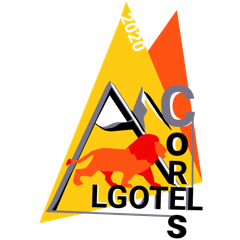AlgoTel et CoRes sont deux conférences francophones organisées conjointement et ayant pour objectif de réunir toute la communauté universitaire et industrielle souhaitant partager ses compétences et ses résultats récents liés à l’ensemble des problématiques traitant des réseaux de télécommunications, offrant ainsi un lieu commun de rencontre et d’échanges entre scientifiques et chercheurs francophones venant du monde entier.
En 2020, vu les circonstances exceptionnelles, l’évènement AlgoTel-CoRes est repoussé à la semaine du 28 septembre au 2 octobre 2020. Le site sera accessible aux personnes à mobilité réduite. Informations COVID.
Prix étudiants
Deux prix étudiants ont été décernés lors de cette édition :
- Présentiel : Yackolley Amoussou-Guenou, Consensus en Présence de Participants Rationnels et Byzantins.
- À distance : Kevin Jiokeng, FUSIC, du Ranging WiFi de haute précision en présence de multi-trajet.

